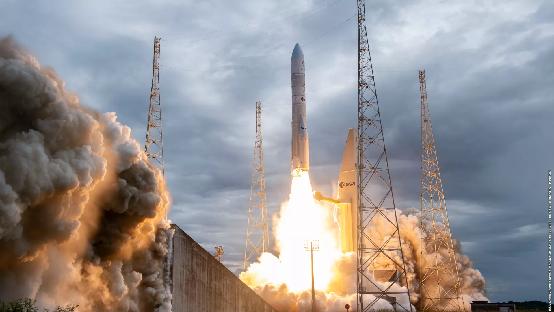
The European Commission proposed a new EU Space Act on Wednesday, aimed at creating a competitive single market for space services and data by simplifying procedures, protecting space assets, and ensuring a fair competitive environment for all businesses. The proposal of this initiative comes at a time when Europe may further fall behind global competitors such as the United States and China. This initiative applies to both EU and non EU operators (excluding military activities) and plans to provide support for small and medium-sized enterprises.
The core objectives of this bill include reducing the risk of space debris collisions, protecting satellite systems from cyber attacks, building an EU space single market, and promoting technological sovereignty and rule making. After the Russia-Ukraine conflict, the EU began to accelerate the process of space autonomy and began to reduce its dependence on US and Russian technology, such as stopping the Russian Soyuz rocket and turning to self-developed Ariana 6 rocket. The bill clearly proposes to lead at least three international space technology standards by 2030, increase the proportion of technology exports to 35%, and build a "European version of Starlink" moat.
The space bill will enable us to grow and expand in the space field, which means achieving growth and creating jobs on Earth and in space, "EU Defense and Space Commissioner Andriustubilus told reporters. The regulation also aims to address Europe's fragmented space rules by coordinating measures among countries to create a cleaner, safer, and more resilient EU space market. Kubilus believes that the current dispersed state is not conducive to business, competitiveness, or their future in the space field. He emphasized that Europe hopes to gain greater rights in the global space economy.
The proposal of this bill reflects the EU's recognition of the importance of space activities. With the continuous development of space technology and the increasing abundance of space resources, space has become a new field of national competition. The EU aims to provide a common legal framework for its member states to strengthen the regulation and sustainability of space activities through the development of a space law.
The concept of creating a "single market" for space proposed in the bill is also of great significance. This means that the EU will strive to eliminate legal barriers between member states and create a unified and accessible market environment for space activities. This will help simplify the procedures and processes of space activities, reduce costs for participants, and promote the sharing and utilization of space resources.
In addition, the bill emphasizes the safety and sustainability of space activities. For example, by setting minimum requirements for satellite traffic management, collision risks can be reduced; Protecting EU infrastructure from cyber attacks; And to build Europe's space sector into an important driving force. These measures will help ensure the long-term stability and safety of space activities. However, it should also be noted that there are a series of difficulties in formulating and implementing space laws. How to coordinate the interests and demands of different member states, how to implement laws, and how to deal with spatial uncertainty and risks. These issues must be carefully considered and properly addressed by the EU in formulating and implementing space laws.
In short, the release of the EU Space Act is an important move by the EU in the field of space. I believe that this bill will provide a more standardized, stable, and secure legal environment for EU space activities, drive the development and utilization of space resources, and have a positive impact on the economic and social development of Europe. As for the actual effectiveness, further practical testing is needed.

Recently, HP announced that it expects to cut 4,000 to 6,000 jobs worldwide by fiscal year 2028 as part of a plan to simplify operations and use artificial intelligence to accelerate product development, improve customer satisfaction, and enhance productivity.
Recently, HP announced that it expects to cut 4,000 to 6,00…
Recently, according to people Media, McDonald's announced t…
In the Geneva negotiation hall that day, by the time coffee…
On the evening of November 25th local time, the three major…
Amidst the intensifying global geopolitical conflicts and t…
As ESG concepts evolve and regulatory scrutiny intensifies,…